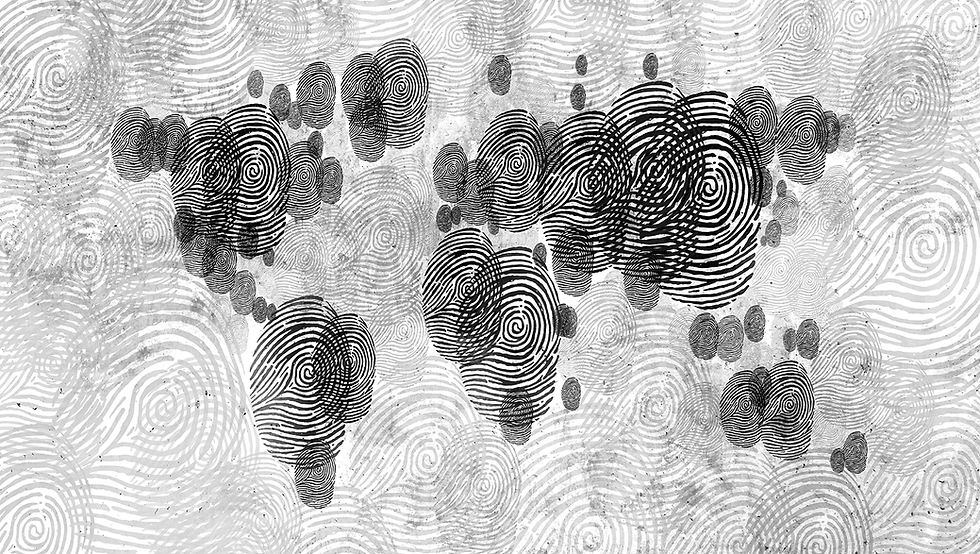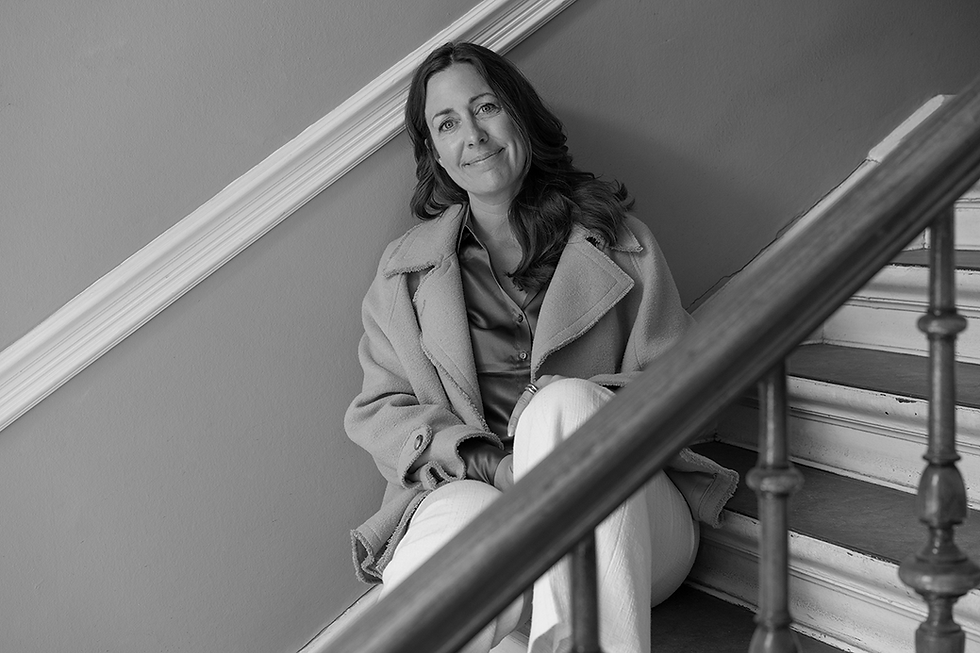ABOUT BEING EXTRAORDINARY
- Anne-Marie Finch

- 1. dec. 2023
- 5 min læsning
You are extraordinary. Maybe you already know this. Maybe you don't. There is only one of you, and your super powers are needed. The world is waiting.
In 2007, I finished my training as a psychologist. I did this in 4.5 years at university. I really sped through my studies. I was very eager to put my studies into practice, outside of the school walls, and this pushed me quickly towards my goal.
Among other things, my education was characterised by reading materials about diagnoses, categories and criteria for various diagnosing.
Right from the first day of university, I wanted to be an occupational psychologist, and I focused my efforts on this area of specialisation in most assignments. From studies of whether humans are good or evil, what characterises a talent, on to the brain's response to learning, memory, emotions, stress, etc.
From either/or to both/and
After I had finished my training, I worked with talent assessment for three years. The reporting was based on empirical data and took a diversified basis of evaluation as its starting point based on interviews, tests and performances, and it was structured in accordance with people's strengths as well as their weaknesses.
These days, I only work with strengths. I do not believe in the value of using weaknesses as a point of focus in connection with talent development.
I do not work with either/or approaches, stigmatisations or putting people into boxes either. I work in the grey areas and with a both/and view of humanity.
The reason for this is that experience has shown me that this is where people can truly meet each other: In the grey areas. Where 1+1=3.
I no longer believe that we as people show the width of our talents in many of the testing tools through which the assessments of talent are constantly filtered.
After more than 4000 global talent assessments, my experience has been the contrary of this.

Stress does not show us the real human being
It has been my experience that when being tested, most people become excessively stressed, and they worry about being misunderstood and not being perceived accurately, and perhaps, they end up being put into the wrong boxes. Particularly because the either/or assessments are carried out by people who do not know the test subjects.
Therefore, I have never found that this type of stress helps bring forward the nuances in talents, and there is a risk that you make conclusions based on the tip of the iceberg, based on what is visible to the naked eye, and are not able to shed light on all the extraordinary features concealed below the surface.
When the empirical data is reduced, the basis for objective decision-making deteriorates. Thus, the probability of a subjective and biased assessment of a person increases.
Regarding brain chemistry, we also know for a fact that stress reduces the possibility for common sense, innovation and empathy. So, why do we put talents in a stressful situation if we want to get to know them?
We are not employed to assess whether they can survive in a war scenario, after all.
Thus, you might end up making conclusions about a person's talent based on limited empirical data and, in the final analysis, create a made-up version about who this person is.
Without any consideration for this person’s possibility of talking about their true version, as the setting often promotes an uncertainty about being misunderstood and thus behaviour and actions that are not in sync with the general perception of the person in question.
Can you really make conclusions on a person's level within a few minutes?
For example, I was recently a candidate for a seat on a board of directors, and in the interview, I spoke 20% of the time, if not less, while the chairman and his right-hand man spoke 80% of the time, if not more.
The meeting was in the morning, I was nervous, and it did not make me any less nervous that one of the interviewers ate three packs of nuts without looking at me, and when he finally did, he referred to his many years at McKinsey while pointing out that apparently, many studies showed that you would know if a candidate was right for the job within the first few minutes.
Then, why go out of your way to understand...?
I found it difficult to get a word in edgewise, and when I was asked a question, the interviewers listened impatiently, eager to speak themselves or answer the question for me.
After this, the feedback was that I lacked experience within one specific area, which is perhaps one of the competencies on my resume where I have the most insight, but I was not given the time to tell my story. The story was interpreted for me—perhaps even within the first few minutes of the meeting.
When we do not succeed
We often refer to the diversified basis of evaluation when making a personal assessment of candidates, but do we actually succeed? - Or, does the assessment actually become prejudiced? - Do we favour cognitive qualities over the internal compass? - How can we make sure that we uncover the inner compass, if people are cautious and uneasy? - How much can be learned, and what cannot be learned? - Do the age-old test tools and interview techniques place too much emphasis on what can be learned? - Do the age-old test tools and interview techniques miss what cannot be learned or what it would require an extra effort to learn, and which is precisely what the psychologically safe company cultures value these days?
Yesterday, one of my clients concluded very clearly on the turnaround in the past two years: 'Looking back this last year, I’ve realised that it’s not the talent you have, it’s what you give to other people. It doesn’t matter if you are very talented and you don’t bring good to others. If you have the right energy and share it with others, you can uplift everyone.'
Strengths have a high vibrational energy, while weaknesses have a heavy and low vibrational energy. Therefore, if we place emphasis on strengths, we promote a high energy, which in turn lifts the energy of others.
There is no need to work with weaknesses at all, as they only occur if we do not shed light on our super powers and foster more of them in ourselves and in each other.
Therefore, I do not believe in the value of using weaknesses as a point of focus in connection with talent development.
Because, we should attempt to place emphasis on things that have a high vibrational energy–the strengths–rather than things with a low vibrational energy, which will neutralise the high level.
You deserve to be seen exactly as you are, making it possible for you to belong as you are. Because, you are extraordinary, as there is only one of you.
The world is waiting, and it needs ALL your contributions!



Kommentarer